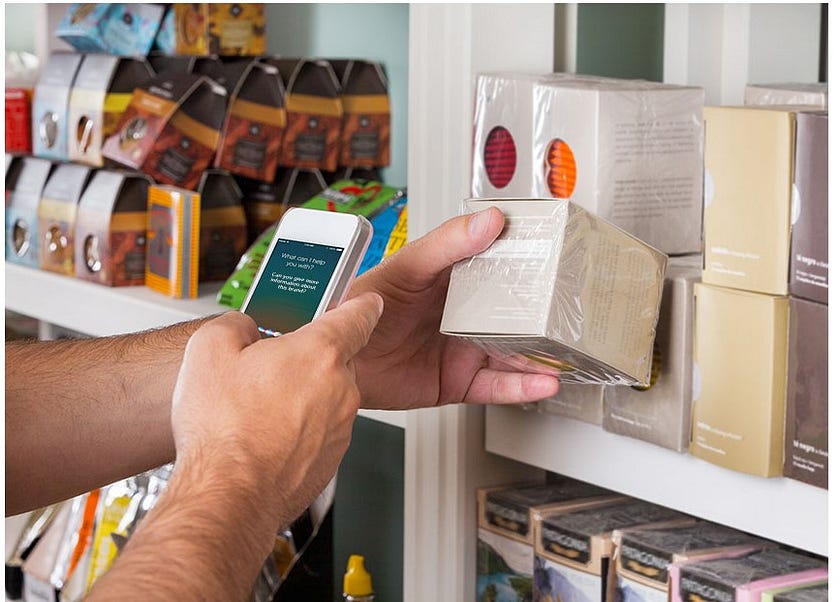Harnessing AI in Retail: Enhancing In-Store Customer Experience
The retail landscape is undergoing a significant transformation as businesses increasingly adopt advanced technologies to enhance customer experience. One of the most impactful innovations reshaping the retail industry is artificial intelligence (AI). From personalized shopping experiences to optimized inventory management, AI in retail is revolutionizing how stores operate and engage with customers. This blog will explore five innovative ways AI is being utilized in retail to elevate in-store customer experiences.

1. Personalized Shopping Experiences
One of the most profound impacts of AI in retail is its ability to deliver personalized shopping experiences. By leveraging customer data, AI algorithms can analyze shopping habits, preferences, and behaviors to offer tailored recommendations and promotions. Here’s how:
- Personalized Promotions: AI can create targeted marketing campaigns based on individual customer profiles, ensuring that promotions are relevant and timely.
- Product Recommendations: AI-driven recommendation engines can suggest products that align with customers’ past purchases and browsing history, enhancing the likelihood of conversion.
- In-Store Assistance: AI-powered chatbots and virtual assistants can provide real-time, personalized support to shoppers, answering queries and guiding them through the store.
2. Optimized Inventory Management
Effective inventory management is crucial for retail success. AI helps retailers optimize their stock levels, reducing the risks of overstocking or stockouts. Here’s how AI aids in inventory management:
- Demand Forecasting: AI algorithms can predict demand trends based on historical data and market analysis, allowing retailers to adjust inventory levels accordingly.
- Automated Restocking: AI-powered systems can monitor inventory levels in real-time and trigger automatic restocking processes to maintain optimal stock levels.
- Waste Reduction: By accurately forecasting demand, AI helps minimize waste, especially in perishable goods, leading to more sustainable business practices.
3. Enhanced Customer Insights
Understanding customer behavior is key to delivering exceptional retail experiences. AI provides deeper insights into customer preferences and shopping patterns through advanced analytics:
- Behavioral Analysis: AI analyzes customer interactions and transactions to identify patterns and trends, enabling retailers to understand what drives purchases.
- Sentiment Analysis: By processing data from social media and customer reviews, AI can gauge customer sentiment and identify areas for improvement.
- Customer Segmentation: AI clusters customers into segments based on their behavior and preferences, allowing for more targeted marketing and engagement strategies.
4. Streamlined Checkout Processes
Long checkout lines are a common pain point for in-store shoppers. AI technologies can streamline the checkout process, enhancing the overall shopping experience:
- Self-Checkout Systems: AI-driven self-checkout kiosks and mobile apps enable customers to scan and pay for items independently, reducing wait times.
- Facial Recognition: Some advanced AI systems use facial recognition for seamless, secure, and personalized checkout experiences.
- Cashierless Stores: Innovative AI technologies, such as those used in Amazon Go stores, allow customers to walk in, pick up items, and leave, with the transaction being processed automatically through AI systems.
5. Improved In-Store Navigation
Navigating large retail stores can be overwhelming for customers. AI-powered solutions improve in-store navigation, helping customers find what they need quickly and efficiently:
- Smart Shelf Labels: AI-enabled smart shelf labels display dynamic pricing and product information, guiding customers to the right products.
- Indoor Navigation Apps: AI-driven indoor navigation apps provide real-time directions to specific products or departments within the store.
- Interactive Maps: In-store interactive maps powered by AI can display product locations, promotions, and personalized recommendations, enhancing the shopping experience.
Conclusion
The integration of AI in retail is transforming the industry by enhancing the in-store customer experience through personalization, optimized inventory management, deep customer insights, streamlined checkout processes, and improved navigation. As AI technology continues to evolve, its applications in retail will undoubtedly expand, providing even more innovative ways to engage and delight customers.
For a more detailed exploration of how AI is revolutionizing the retail sector and enhancing in-store customer experiences, check out this comprehensive article: 5 Ways to Utilize Artificial Intelligence in Retail for Enhancing In-Store Customer Experience. By embracing AI, retailers can stay ahead of the competition and meet the ever-changing expectations of their customers.
Comments
Post a Comment